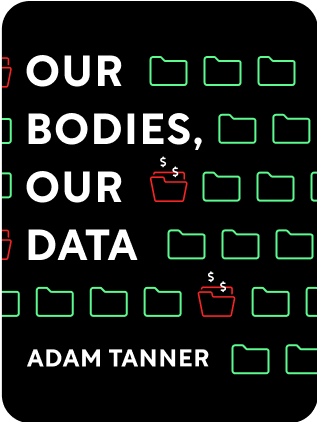

This article is an excerpt from the Shortform book guide to "Our Bodies, Our Data" by Adam Tanner. Shortform has the world's best summaries and analyses of books you should be reading.
Like this article? Sign up for a free trial here .
Did you know that your healthcare data privacy is compromised by big business? What factors propel the selling of patient data, and what factors counteract it?
In Our Bodies, Our Data, Adam Tanner dives deep into the topic of healthcare data privacy. He identifies the forces for and against the selling of medical data and provides insight into what drives this big business. He also shares some aspects of the healthcare industry that frame their strategy.
Read more to learn about important factors that impact healthcare data privacy.
Propelling Forces for Patient Data Selling
Healthcare data privacy is a matter that affects all of us. We would do well to be aware of these forces that have propelled patient data selling over the past decades:
- A general public indifference about privacy
- A majority of people do not opt out of the sharing of anonymized health data when given the option.
- More recently, sites like Facebook, Google train people to expect a lack of privacy in their everyday life.
- Data sources (such as pharmacies and hospitals) want to improve their earnings numbers, and selling data is a high-margin boost to their bottom line.
- HIPAA only protects health data with identifiable info and only applies to providers, payers, and clearinghouses (so-called “covered entities”).
- Other parties can bypass this with loophole
- Digitization of healthcare info makes transfer of patient data easier than mailing in receipts like in olden days.
- Medical data is sold for its purported benefits about helping people.
- Manufacturers believe their drugs are good, so selling their drugs more effectively can only help more people.
- Pharma salespeople believe they’re educating doctors about better medications.
- Doctors believe more data access helps research studies.
- Shared medical data is actually useful for research, and it’s legally difficult to block commercial uses while allowing research uses.
- More drugs available in the late 20th century, along with readily available reimbursement from insurers, power more marketing spend by pharma companies.
- Generics and me-too drugs require for more effective marketing to attract attention.
- Salespeople are actually effective—physicians are too busy to read the latest literature, so they’re swayed by salespeople pitches
Opposing Forces
Healthcare data privacy has a few forces on its side. Our Bodies, Our Data identifies these factors that have counteracted the sale of patient data:
- Negative public sentiment in a few dimensions:
- General fear of privacy invasion
- Korea has fought against the sale of anonymized data
- Some patients ask, “If I pay you cash, will you keep my medical records private?”
- Fear of being discriminated against using your medical record, resulting in:
- Higher rates for life, health insurance
- Job rejection
- Blackmail
- Providers feel manipulated by being tracked for their prescribing behavior.
- Increasingly, providers are refusing to see salespeople
- General fear of privacy invasion
- Regulatory changes
- Gifts to doctors from pharma are now largely prohibited.
- Current guidelines are for gifts not to exceed $100, and they should be medically related (such as stethoscopes, not golf trips).
- Some states are outlawing the use of prescription data for marketing.
- For example, in New Hampshire, Vermont, and Maine.
- But this was struck down by the Supreme Court, which hesitated to bar pharma but not researchers from accessing doctor-identified data.
- The FDA is clamping down on me-too drugs, which will decrease the marketing demand to separate drugs that are largely identical.
- Gifts to doctors from pharma are now largely prohibited.
- Insurance companies are now seeking higher co-pays for branded drugs vs. generics, which limits the marketing efficacy of branded drugs.
- Among researchers, there is a perception that it’s more difficult to get accurate insights from medical record data compared to a randomized controlled trial.
Miscellaneous Points
Here is a collection of points that Our Bodies, Our Data makes about the healthcare industry. These make up a strategy that impacts healthcare data privacy.
- Physicians generally resist trends that threaten their dominance.
- They resisted computerized patient data, since this would weaken the exclusive control they had over patient data.
- The fragmentation of healthcare across providers and EMRs makes it hard for any single party to force cross compatibility.
- This gives rise to the problem where if you get emergency treatment in a different state, the hospital may not have access to your home patient record.
- Doctors are easily swayed by their base needs, like any other human.
- Said one doctor: “Many reps are so friendly, so much fun to flirt with that it’s impossible to demonize them. How can you demonize someone who brings you lunch and touches your arm and remembers your birthday?”
- HIPAA allows any provider to view the whole EMR of a patient.
- This has caused some consternation about being totally truthful with doctor.
- De-anonymization basically does a cryptographic hash of personal information, such as name, birth date, age, and location.
- It’s not illegal to re-identify anonymized health data, though it may be a breach of contract.
These findings give insight into how the market for medical data operates, which has crucial implications for healthcare data privacy.

———End of Preview———
Like what you just read? Read the rest of the world's best book summary and analysis of Adam Tanner's "Our Bodies, Our Data" at Shortform .
Here's what you'll find in our full Our Bodies, Our Data summary :
- Why your medical data is no longer safe
- Who is selling your medical data and why
- Why it’s already too late to opt out or take back your data






